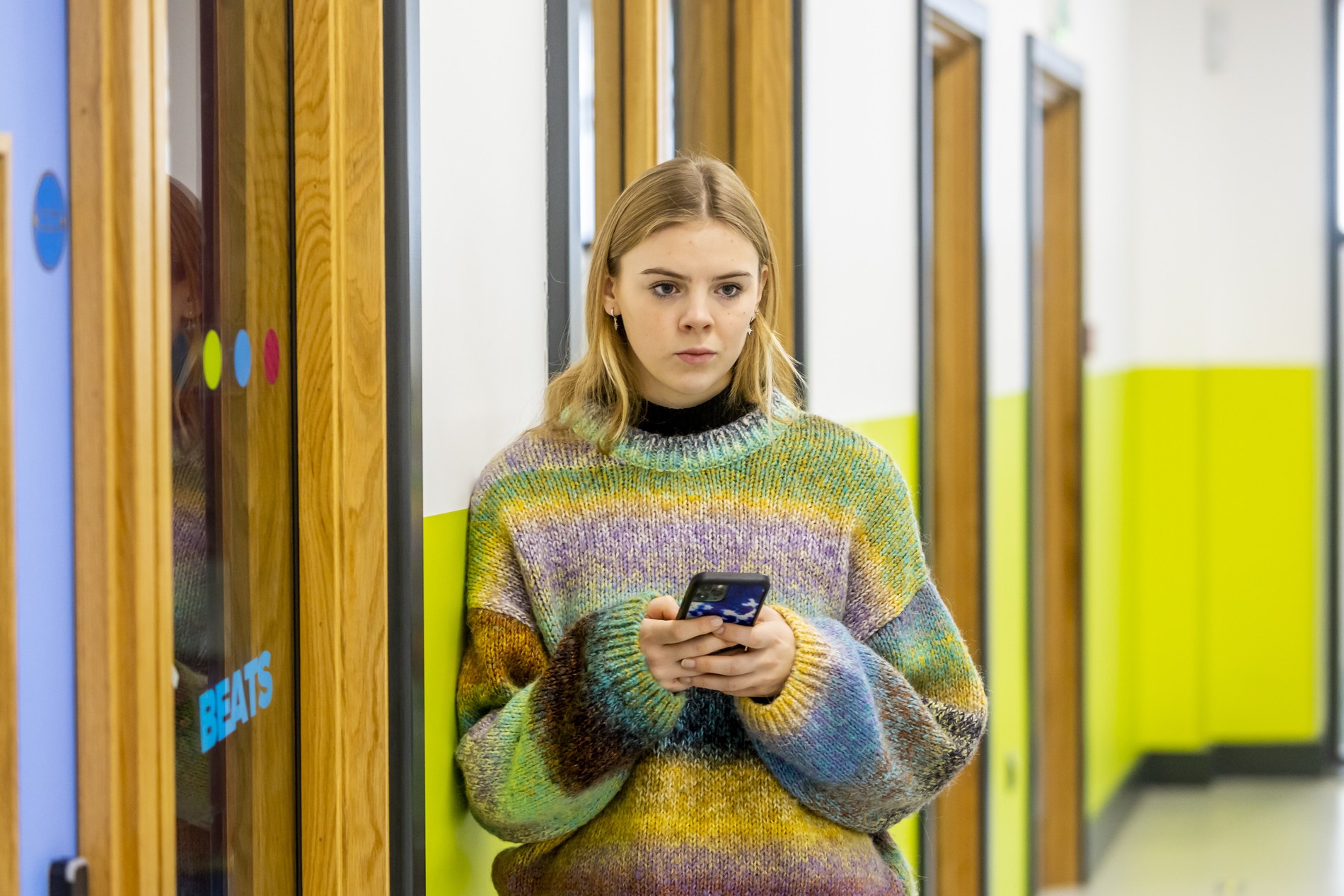The news is making me feel anxious
Hearing about scary or upsetting things in the news can lead to feelings of anxiety. If you’re feeling concerned about something you’ve read, heard or watched, we’ve got some tips to help.

Being exposed to the news constantly can have a detrimental effect on mental health – whether that’s on TV, on the radio or on social media. It’s a good thing to feel connected to the world but hearing stories about war or terrorist attacks can also make you feel anxious or unsafe. The most important thing to remember is that it’s okay to feel like this.
Feeling anxious after reading the news
If something bad happens – no matter where in the world – the chances are you’ll read, watch and hear about it from multiple sources. When there’s a big event such as the current war in the Ukraine, it’s on the news all the time, everyone’s talking about it, and this can feel very overwhelming.
Having constant access to the news can make it feel like terrible things are happening all the time and like things are worse than ever. In reality, things aren’t necessarily worse, but it can understandably lead to anxiety.
What can I do if I feel sad after seeing the news?
If you’re feeling overwhelmed by the stories you’re hearing, you can:
- Tell someone you feel comfortable with. Talking about your worries can make you feel less alone.
- Focus on the positive things you hear in the news or in your personal life.
- Take a break from the news. It’s easy to get sucked into a news story. Take a break, read, watch or listen to something completely different.
- Protect yourself from offensive content online. Many social media platforms allow you to block or report disturbing imagery or offensive comments.
- Read our article on How to Protect Your Mental Health Online.
- Get in touch with our support services to talk things through.
- Take action – activism can be a great way to deal with feeling helpless. If you want to do something to help people in the Ukraine, there are some ideas here.
Fake news also makes things even more confusing, so finding out how to identify it might also help ease some of your worry. Read our guide to how to spot fake news here.
I feel anxious about my own life, what can I do?
When tragic events like a new war, terrorist bombings or shootings happen, you might worry that similar things might happen to you or someone you know. This can feel even worse if you’ve been reading your local news; where crimes might be happening in your area, as an example.
While this is a very normal concern, it is important to remember that these events are very isolated. They are rare and that is why they have made the news. The likelihood that the same bad thing will happen to you is small.
What is being done to keep us safe?
It’s important to remember that Boris Jonson has confirmed the UK will not engage in direct conflict with Russia, so military conflict between Britain and Russia is extremely unlikely. Find out more about this issue here.
The government and our police are dedicated to keeping people in the UK safe from all kinds of crime, ranging from the minor to extreme. Extra precautions put in place to keep you safe include:
- Extra police officers in towns and public spaces like train stations and stadiums.
- Strict checks and high security at airports.
- The government and police have hired specially trained experts to protect the UK.
What can I do if I’m being bullied because of something in the news?
Sadly, after events like terrorist attacks and wars, it is proven that hate crimes increase – many of these crimes are fuelled by racism or Islamophobia. Being bullied or harassed because of your faith, nationality or race is not okay – if you are being bullied, you can:
Call the police: Report the incident as a hate crime on 999 – or 101 if you think it’s less serious.
Report it anonymously: If you’re too scared to go to the police you can report it anonymously via organisations such as Tell MAMA or Stop Hate UK.
Speak to someone you trust: You shouldn’t have to go through this alone. Talk to trusted friends and family members who can offer support. If you’re at school or university, tell a teacher or staff member about what’s happened.
Get further support: If you’d like to talk to someone you don’t know, Victim Support provides confidential support to people affected by crime or traumatic events.
Next Steps
- Chat about this subject on our Discussion Boards.
By
Updated on 24-Feb-2022
Sorry, comments closed
No featured article









